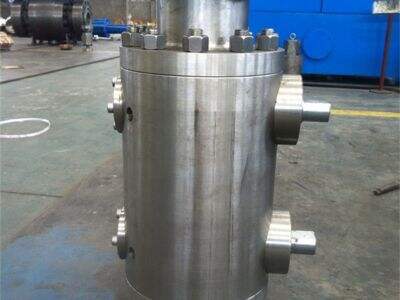What is a ball valve? These are very essential devices used to regulate the flow of liquids or gases in a pipeline. Consider them like a gate that opens and closes, to allow or prevent flow. Ball valves can be divided into two basic types, these are known as metal seated and soft seated. We will learn more about both of them in this text. We will discuss the pros and cons of each type so that you can make the decision as to which you think is the best match for you.
Ball Valves: Metal Seated or Soft Seated?
The type of fluid or gas that will flow through the valve is a key consideration when trying to decide between selecting a metal seated or soft seated ORBIT BALL VALVE. If you're dealing with a rough, particulated, or high-temperature liquid or gas, a metal seated ball valve may be the way to go for you. The reason is that metal seated ball valves are robust and work in tough conditions.
However, if the liquid or gas is relatively clean with no debris, and it is necessary to have a bubble-tight seal, then a soft seated ball valve may be the better choice. Soft seated ball valves are meant to create a high integrity seal, making sure everything in sealed tight and secure.
Pros and Cons of Metal Seated and Soft Seated Ball Valves
Metal Seated Ball Valve
Good Things:
Rugged and Resilient: Metal seated ball valves are extremely rugged and can function for long periods without failure. These are constructed from solid materials that are hard to damage.
Ideal for Harsh Environments: These valves can be used with abrasive and high-temperature liquids or gases. This is the right type of valve for you if you can already experience wear and tear.
Durable: These valves are constructed with robust materials able to withstand regular usage without having to be replaced very fast.
Bad Things:
Higher Cost: One disadvantage to using metal seated ball valves is that they typically have a higher price tag than soft seated ball valves. This can be a concern if you are on a tight budget.
You Might Not Need a Metal Seated Ball Valve: Smooth liquids or gases generally do not require the use of a metal seated Ball Valves.
Can Be Noisy: Metal seated ball valves have to make noise when they are working sometimes. This isnt likely a huge issue, but something to consider.
Soft Seated Ball Valve
Good Things:
Economical: Soft seated ball valves are generally inexpensive, thus an economical option for many.
Good for Smooth Liquids Or Gases: If you are only dealing with smooth and non-abrasive liquids or gases while using your valve, then these valves work the best.
Effective Shutdown: The unique design of the soft seated ball valve provides for a tight closure, preventing leakage. This has a lot of implications in safety-critical applications.
Bad Things:
Can Wear Out Faster — A soft seated ball valve will wear out easier than a hard seated Forged Ball Valves. If used against gritty or abrasive materials, they may need replacement sooner.
Not for Viscous Liquids or Gases: If the liquid or gas phase is viscous, it may make the valve unsuitable, resulting in serious issues.
Restricted Temperature Range: These valves have a restricted temperature range, so their applications are limited.
Metal seated ball valves vs soft seated ball valves
There are a few major factors to consider when comparing a metal seated and soft seated ball valve. One of the key considerations is what you are using the valve for. Metal seated ball valves are most recommended in applications involving coarse or particulate-contaminated liquid or gas. They are also excellent at high-temperature applications. That makes them ideal for places where heat is an issue.
Soft seated ball valves, on the other hand, work best when you need something that can form a super tight seal. They’re excellent for handling viscous liquids or gases, where leaks must be prevented at all costs. These valves are expected to perform well in these applications and are an excellent selection for numerous tasks.
Another consideration is cost. Comparison of sev-valve Metal Seated Ball Valves Vs Soft Seated Ball ValvesMetal seated ball valves are relatively more expensive than soft seated ball valves. They are much more durable though, so they could end up saving you money over time. Soft seated ball valves are less expensive, but you may have to replace them more frequently as they can wear out.
Metal Seated or Soft Seated Ball Valves: Right for You?
When determining if metal seated or soft seated ball valves are the contact necessary for you, it is useful to ask yourself a series of questions. Start off by considering what you will have passing through the valve in terms of either a liquid or a gas. Is it rough or smooth? Is it something that would wear out give some time?
Next, determine whether the liquid or gas requires an airtight seal to prevent leaks. This is crucialin regard to safety.” And lastly, consider your budget. How much can you spend on a valve?
Metal seated ball valves If you know the liquid or gas you are working with is sticky or extremely hot and does not require extremely tight sealing, then metal seated ball valve may be the best solution. But for a smooth liquid or gas and an application that requires a tight seal to prevent insignificant leakage, a soft seated ball valve may be the right option.

 EN
EN








































 ONLINE
ONLINE